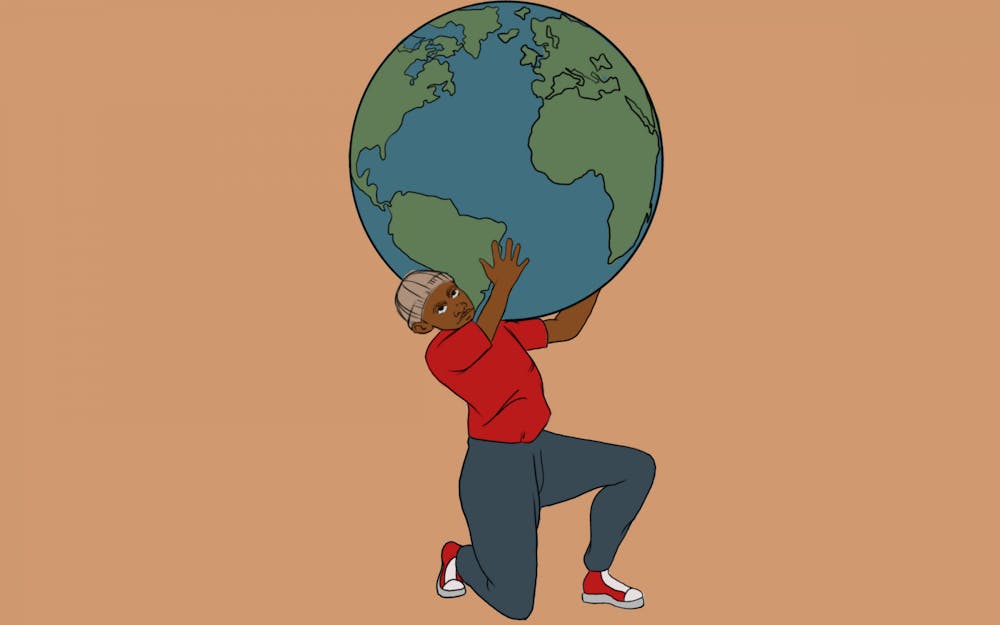Generation Z is inheriting a nation predicted to collapse in twenty years.
A 1972 MIT study made this claim using system dynamics software, a computer model that studies and predicts patterns in complex systems in the world. It considered factors such as population, pollution, food supply and production. Despite running several different scenarios, the computer’s prediction of an economic and societal collapse around the year 2040 was consistent.
The study was later updated by KPMG in the Yale Journal of Industrial Ecology in 2020, and the results were just as grim.
The study ultimately concludes that a planet and its limited amount of natural resources are incompatible with human activity and the desire for infinite economic growth. Eternally green stock prices, bottomless oil wells and rapidly regenerating forests are just dreams, and if the data from the report is correct, then we are in for a rude awakening.
The depletion of natural resources and the destruction of ecosystems have become the crisis of our time. However, history reminds us that not long ago another generation was faced with a global crisis.
The generation that braved the worst economic recession in modern history and stopped the most dangerous totalitarian regimes from further engulfing the planet into genocide and war did in fact save the world.
Their title as the “Greatest Generation” is well-deserved.
But this great generation is leaving us now, and we are left in the world they built. We are the heirs to a marvelous network of human genius and engineering: the world of international cooperation, a globalized economy, a technology-dependent society and higher standards for human rights.
Many of these advances have come at the mighty cost of environmental and economic sustainability, leaving the succeeding generations with the mess.
I don’t see this as a burden, but rather as an opportunity.
Aside from zoomer humor, memes and Tik Tok, Generation Z is still largely without a cultural identity. We have little to no presence in government, we’re not very active in business or scientific advancement and we have yet to reshape the arts, music and entertainment the way older generations have. We are at this moment in history a blank slate with a tremendous amount of potential. The brewing social, economic and ecological crises are our test to become the new “Greatest Generation.”
Our challenge is to simultaneously keep the progress made by our predecessors while at the same time bringing about revolutionary new changes. Since necessity will always be the mother of invention, I predict Generation Z will be the most creative and innovative generation yet.
But if we play into divisive culture-war politics, if we are unable to unify for the common good as the Greatest Generation did and if we are unable to break the cycles of mindless consumption and endless growth, then we would be allowing our own demise.
We ought to remain inspired by the Greatest Generation, who met scarcity with ingenuity and fascist tyranny with democratic liberty. They are the generation that started to dismantle colonialism and began a new civil rights era. They turned the world from warring isolated nation-states into an international community.
In the face of this threat, we could stand to learn from one of the few remaining members of that generation, President Jimmy Carter.
“It's clear that the true problems of our Nation are much deeper,” Carter said more than 40 years ago. “Deeper than gasoline lines or energy shortages, deeper even than inflation or recession,” he said. “The threat is nearly invisible in ordinary ways. It is a crisis of confidence. It is a crisis that strikes at the very heart and soul and spirit of our national will.”
What the MIT report tells me is not that Mother Nature is going to unleash her wrath, or that the mysterious wizards controlling the value of money and the stock market are going to turn on us. The outcomes the report is warning us about are entirely caused by our own choices as a species.
We’ve become our own worst enemy. The question is if we can conquer our desires and our nature.
Can we reorganize the economy? Can we make sacrifices for the environment? Can we take what we need, not what we want? Can we set aside petty disagreements for the greater good? Can we put stability before rapid growth? Can we control ourselves? If we can, then we will become the new Greatest Generation.
Eric Reingardt (he/him) is a freshman studying pre-law. He is a freelance writer with a profile on Substack.






